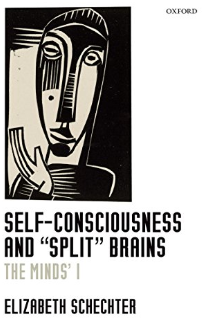In this episode, I had the pleasure of speaking with Dr. Elizabeth Schechter, who is an Assistant Professor of Philosophy and Philosophy-Neuroscience-Psychology in the Department of Philosophy and in the Philosophy-Neuroscience-Psychology Program at the Washington University in St. Louis. Her work centers on questions of psychological unity, with a focus on split-brain, which you can find in her book, Self-Consciousness and “Split” Brains: The Minds’ I.
We had a great conversation and covered consciousness, split-brains and the mind-body problem, and more. Please enjoy this episode with Dr. Elizabeth Schechter.

Questions:
- What is Psychological unity? Unity of Consciousness?
- Let’s get a baseline to work from here. How do you define consciousness? What IS consciousness? Mind v. Person.
- Duality? Physicalism? Etc.
- What is the relationship of a person to their mind/brain?
- Split Brains:
- Please give us a little background on what ‘split brain’ is.
- How does this play into your views on ‘unity’ of consciousness and psychology?
- Does this result in two, independent consciousnesses? (2-person claim)
- Perspectives versus Agents versus Thinkers? What are the differences there, and how do those differences play into understanding consciousness?
- In a split brain, parts of the brain are still integrated, or synchronized, right? Like vision? What else? [two separate human beings sitting next to each other would also be getting the same inputs, right?]
- How does that play into all of this?
- I’m curious about the implications of split brain and mind-brain duality. What, if any, observations have been made with split-brain patients that might shed light on that and the binding problem?
- Is the single ‘mind’ still bound to both sides of a split brain?
- Ego?
- Can (does) one side of the brain ask, “Something it is like to be the other side of my brain?”
- “I think, therefore I am” and other tests of individuality and consciousness? Have those been done, experimentally?
- The mirror test (animals) on a split brain subject?
- We can cut the connection (corpus callosum) between the two hemispheres. Can we introduce a third (artificial) ‘hemisphere’?
- What is a consciousness versus a person: conjoined twins, DID, split brain?
- What are you currently working on? What can we expect from you in the near future?
- In the field of consciousness (or other areas), what studies or potential breakthroughs excite you?
- Anything else you’d like to share?
Podcast: Play in new window | Download